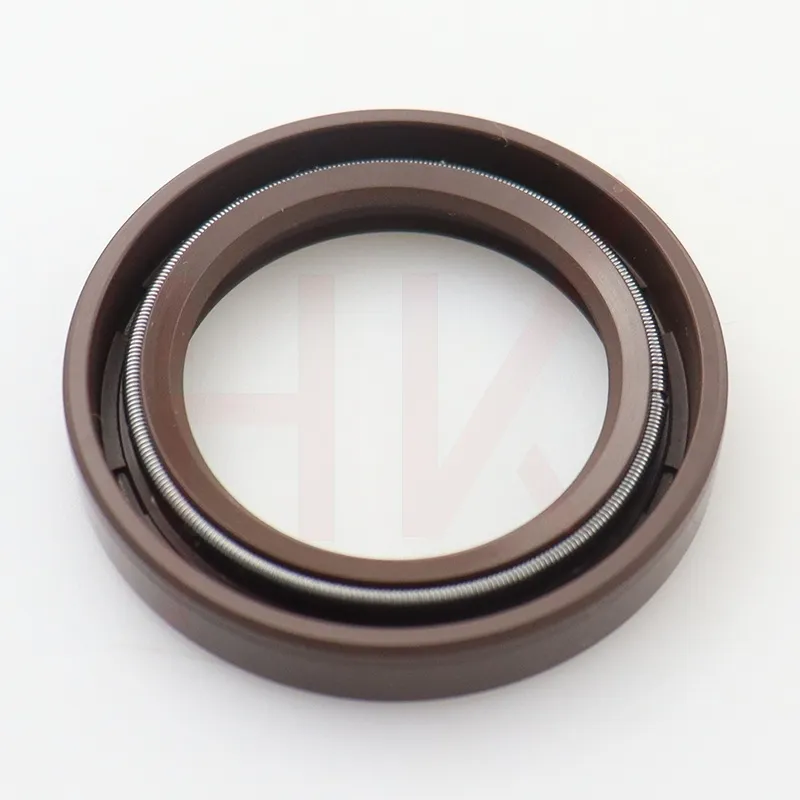Ное . 09, 2024 14:44 Back to list
High-Performance Seals for Extreme Temperature Oil Applications and Durability Solutions
High Temperature Oil Seals An Overview
Oil seals, commonly referred to as lip seals or rotary shaft seals, play a crucial role in various machinery and automotive applications by preventing the leakage of lubricants and fluids while also protecting internal components from contaminants. Among the various types of oil seals available, high-temperature oil seals are specifically designed to withstand elevated temperatures and harsh environments. This article delves into the characteristics, applications, materials, and advantages of high-temperature oil seals.
Characteristics of High-Temperature Oil Seals
High-temperature oil seals are engineered to maintain effective sealing performance in extreme heat conditions, usually above 100°C (212°F), and in some applications, even up to 300°C (572°F) or more. They are manufactured with specialized materials that retain their sealing properties under prolonged exposure to high temperatures. Key characteristics of these seals include
1. Temperature Resistance High-temperature oil seals are designed to function effectively in high-heat environments, providing reliable sealing in conditions that would typically degrade standard seals.
2. Chemical Compatibility These seals are often exposed to aggressive chemicals and various lubricants. They are made from materials that can resist chemical degradation.
3. Durability The design and materials used in high-temperature oil seals contribute to their longevity. They can withstand wear and tear associated with high temperatures and mechanical stress.
4. Versatile Design High-temperature oil seals come in various designs and sizes, making them suitable for an array of applications in different industries.
Materials Used
The effectiveness of high-temperature oil seals largely depends on the materials used in their construction. Common materials include
- Fluorocarbon (FKM) Known for its excellent heat resistance and chemical stability, FKM is often the material of choice for high-temperature applications. It can operate in a temperature range of -20°C to 200°C (-4°F to 392°F) and, in some formulations, up to 260°C (500°F).
- Silicone Another popular material, silicone seals provide good thermal stability and flexibility at high temperatures. They are effective in applications where low-temperature flexibility is also a requirement.
- Polyacrylate This material offers good thermal resistance and is often used in applications involving automotive and industrial machinery.
- Thermoplastic Elastomers (TPE) These modern materials combine properties of rubber and plastic, providing high-temperature resistance along with durability and flexibility.
high temperature oil seal

Applications
High-temperature oil seals are utilized across a wide range of industries
1. Automotive In vehicles, high-temperature oil seals are crucial in engines, transmissions, and differentials, helping to prevent oil leaks and maintaining optimal performance.
2. Aerospace Aerospace engines and components often operate under extreme conditions. High-temperature oil seals ensure reliability and safety in these advanced applications.
3. Industrial Machinery Manufacturing equipment, compressors, pumps, and turbines frequently require high-temperature seals to maintain efficiency and prevent costly downtime due to leaks.
4. Oil and Gas In drilling and refining operations, high-temperature oil seals are essential to handle extreme conditions while preventing the escape of oils and other fluids.
Advantages of High-Temperature Oil Seals
Implementing high-temperature oil seals in machinery comes with several benefits
- Leak Prevention Their primary function is to prevent the escape of lubricants, which is vital in maintaining the performance and longevity of machinery.
- Protection Against Contaminants High-temperature oil seals guard against dust, dirt, and moisture, ensuring that internal components remain clean.
- Cost Savings Reducing leaks minimizes waste and, consequently, the costs associated with lubricant replenishment and machinery maintenance.
- Enhanced Performance Proper sealing leads to improved efficiency and performance of mechanical systems.
Conclusion
High-temperature oil seals are indispensable components in the performance and reliability of many machines and vehicles operating under extreme conditions. Their unique properties, materials, and applications make them critical for efficient operation in diverse industries. Understanding these seals and their functionality helps engineers and technicians make informed decisions when selecting sealing solutions for their machinery.
-
TCN Oil Seal Metal Ring Reinforcement for Heavy Machinery
NewsJul.25,2025
-
Rotary Lip Seal Spring-Loaded Design for High-Speed Applications
NewsJul.25,2025
-
Hydraulic Cylinder Seals Polyurethane Material for High-Impact Jobs
NewsJul.25,2025
-
High Pressure Oil Seal Polyurethane Coating Wear Resistance
NewsJul.25,2025
-
Dust Proof Seal Double Lip Design for Construction Equipment
NewsJul.25,2025
-
Hub Seal Polyurethane Wear Resistance in Agricultural Vehicles
NewsJul.25,2025
-
The Trans-formative Journey of Wheel Hub Oil Seals
NewsJun.06,2025
Products categories
















